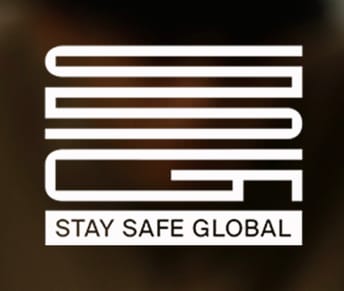Saoirse Ronan’s Comment on Women Safety Goes Viral: She Was Right and Here’s Why

Trigger Warnings: Discussion of gender-based violence; References to harassment and discrimination; Mention of misogynistic attitudes and incel culture; Descriptions of unsafe work environments; Topics involving mental and emotional distress; Coverage of public policy and legal obligations related to employee safety, Content addressing societal and cultural shifts towards inclusivity and equality
In a recent episode of The Graham Norton Show, Saoirse Ronan sparked an important conversation about women's safety. Her remark about women considering their phones as potential weapons resonated with many and ignited a vital public discussion. "It’s wild," she noted in a later interview, reacting to the overwhelming response. But why was her comment so relatable, and what does it say about our society?
The Hidden Reality of Women's Safety
Ronan's comment went viral for one simple reason—it's a painfully relatable reality for countless women. Statistics from the World Health Organisation reveal that 1 in 3 women globally have experienced physical or sexual violence in their lifetime, often at the hands of an intimate partner. This alarming truth underscores Ronan's point, highlighting the constant vigilance women must maintain to feel safe.
The fear of violence restricts women's freedom to navigate public spaces safely, affecting their daily choices and movements. According to a United Nations Women report, 58% of women globally have experienced harassment on public transportation. Furthermore, a survey conducted by Plan International found that 84% of women in cities feel unsafe in public areas. This pervasive sense of danger forces women to adopt safety strategies such as modifying their routes, avoiding certain areas at night, or keeping keys in hand as potential defense mechanisms. These statistics illustrate the urgent need for systemic change to create environments where women can exist without fear, highlighting the critical necessity for societies worldwide to implement and enforce measures that prioritise women's safety in all public spaces.
While statistics provide a staggering view of the challenges women face in terms of safety, they are merely the tip of the iceberg. For every report, numerous stories remain untold, dwelling in the shadows of fear, stigma, or helplessness. Across the globe, countless women carry personal accounts of harassment, intimidation, or violence that are never documented. These stories are often exchanged in whispered conversations among friends, at women-only gatherings, or shared online under the shield of anonymity. The decision not to report these incidents can stem from a multitude of reasons: fear of not being believed, concerns about further harassment, or the belief that nothing will change. The reality is that the understandable silence imposed by these unreported experiences only perpetuates a cycle of invisibility, underscoring the necessity for a more supportive environment where women can not only share their stories without fear but also expect real, tangible action. It’s imperative to recognise that behind every statistic lies a person with a lived experience, highlighting the profound need for compassionate listening, systemic reforms, and collective action to ensure all voices are heard and validated.
Everyday Experiences
The response to Ronan's comments was overwhelming. The Guardian newspaper reported that Lizzi, a 35-year-old pharmacist from Southampton, changes her commute during winter to avoid unlit paths and always keeps her phone nearby. Sarah, a speech and language therapy assistant in London, often tries to make herself appear larger or more aggressive when threatened. Meanwhile, Janey, a retired graphic designer from Norfolk, learned boxing from her father and keeps a large dog at home for comfort. These stories are just a few among many that echo Ronan's message.
As these individual experiences highlight, the onus of ensuring safety cannot and should not rest solely on women themselves. Communities and authorities play a crucial role in fostering environments where safety is a collective responsibility. Local governments need to prioritise urban planning strategies that incorporate well-lit streets, functional public transportation systems, and visible security presence to enhance safety for all civilians. Schools and workplaces must adopt comprehensive education and training programs to cultivate respectful and inclusive cultures, while law enforcement agencies should ensure that reports of harassment and violence are taken seriously, investigated thoroughly, and prosecuted aggressively.
Moreover, societal change requires active involvement from every community member in shifting the narratives that perpetuate inequality and enable predatory behaviors. Men, in particular, must engage as allies, using their voices to advocate for policies and practices that protect and empower women. By challenging stereotypes, intervening in unsafe situations, and participating in dialogues about gender equity, they can help dismantle structures of power and privilege that breed exclusion and fear.
Ultimately, creating a safer society for women is a multifaceted effort that necessitates compassionate listening, reactionary reforms, and proactive initiatives. The journey is long and complex, but through determined, action-oriented collaboration, there is hope for a future where all individuals can thrive without constraint or concern for their safety.
Recognising the urgent need for change, Stay Safe Global is currently working on a campaign to highlight the risks women face in public and on public transport. Our mission is to raise awareness and drive societal change, ensuring that women can live without fear.
The need for the Stay Safe Global campaign is both pressing and essential, driven by the harrowing realities faced by women in public spaces worldwide. Despite significant, though arguably still lacking, advancements in gender equality, safety remains an elusive right for many women, as highlighted by widespread evidence of violence and harassment. This campaign is necessary to shine a light on the often-overlooked dangers women encounter daily and to actively challenge the societal norms that have allowed these issues to persist. By amplifying the voices of those affected and advocating for systemic changes, Stay Safe Global aims to dismantle the barriers to safety, enabling women to fully participate and thrive in public life without fear. The campaign not only seeks to influence policy changes but also to inspire a cultural shift towards a more inclusive and secure environment for all.
New Forms of Violence
Today, women face not only traditional threats but also modern ones, such as geo-location stalking. With the rise of digital technology, tracking someone’s location has become disturbingly easy, adding a new layer of danger for women who are simply trying to live their lives freely.
Geo-location stalking exemplifies how the misuse of technology has evolved to terrorise individuals in ways unimaginable just a few decades ago. The integration of GPS and mobile apps, while convenient, has inadvertently paved the way for perpetrators to access and exploit personal information. The lack of robust privacy measures and security features leaves many vulnerable to constant and unwanted tracking, compounding the fear and anxiety of navigating daily life. This alarming trend highlights the dire need for technology companies to prioritise user safety by enhancing privacy controls and educating the public on safeguarding their location data. Furthermore, legislative measures must adapt swiftly to address this modern form of violence, ensuring there are stringent laws and penalties in place to deter potential offenders. As we confront these evolving threats, the emphasis should remain on fostering a sense of agency and safety for all individuals, empowering them to move through the world with confidence and autonomy.
The Impact of Incel Culture
Incel culture, a movement that blames women for men's perceived disadvantages, has seen a troubling rise. Fuelled by social media, this toxic ideology influences attitudes towards women both at home and in workplaces. This has direct implications for businesses, especially under the UK's new Worker Protection Act, which mandates companies to take proactive measures against sexual harassment.
Incel culture's insidious reach extends beyond individual actions, permeating societal norms and shaping perceptions in detrimental ways. It fosters an environment where hostility towards women is normalised, thereby exacerbating gender-based tensions and fostering toxic workplace cultures. Organisations must recognise the profound impact such ideologies can have on employee well-being and workplace dynamics. It is imperative for companies to not only comply with the UK's Worker Protection Act but to go beyond compliance by fostering a culture of respect, inclusivity, and mutual understanding. This involves implementing comprehensive educational programs aimed at dismantling misogynistic attitudes, promoting gender equality, and creating safe spaces for open dialogue on diversity and inclusion. By actively confronting the adverse effects of incel culture, businesses can play a crucial role in advocating for a society free from bias and aggression, ensuring all employees feel respected and valued in their professional environments. Collaboration between employers, employees, and wider society is essential to counteract these harmful narratives and build a more equitable future for everyone.
The Worker Protection Act and Business Responsibility
Under the new Worker Protection Act, effective October 2024, UK businesses are required to create safe working environments. Companies must now be proactive in preventing harassment, with serious legal, reputational, and financial consequences for non-compliance. This makes implementing comprehensive safety measures not just a legal obligation but a moral imperative.
Ensuring compliance with the Worker Protection Act involves more than just policy implementation; it necessitates a cultural shift within organisations. Businesses must embrace an empathetic and inclusive approach, fostering an environment where every employee feels seen, heard, and valued. This begins with leadership setting a tone of zero tolerance towards harassment and discrimination, coupled with comprehensive training programs that educate employees on recognising and addressing inappropriate behavior. Companies should establish clear reporting channels, ensuring confidentiality and a supportive process for those coming forward. Furthermore, regular audits and feedback loops are crucial to assess the effectiveness of implemented measures and to continuously improve workplace culture. By prioritising these actions, businesses can contribute to a safer, more equitable environment that not only meets legal requirements but also sets the standard for ethical business practices.
Bystander training has become a critical component in addressing harassment and discrimination within modern workplaces. However, in today’s increasingly dynamic work environments, effective training must extend beyond the office walls to encompass scenarios encountered during, for example, business travel and work-related social events. These settings often blur the boundaries of professional conduct, making them susceptible to inappropriate behavior. By empowering employees with the skills and confidence to intervene safely, companies can ensure that all spaces associated with work are inclusive and respectful. This involves equipping individuals not only with the knowledge to recognise harassment but also with actionable strategies to support those affected and de-escalate potentially harmful situations. Bystander training should highlight the importance of vigilance and active intervention regardless of location, reinforcing the notion that everyone shares responsibility for fostering a secure and harmonious work culture. As businesses embrace comprehensive bystander training, they demonstrate a commitment to protecting the well-being of their employees in every facet of the professional landscape.
Conclusion
It doesn’t have to be this way for women. Stay Safe Global offers practical guidance and training to help keep everyone safe. From workshops on recognising threats to providing resources on handling harassment, our holistic approach is designed to empower individuals and organisations to foster safer environments. Saoirse Ronan’s viral comment is more than a momentary headline—it’s a call to action for society. While the conversation is vital, change requires collective effort. Everyone must work together to address these challenges.
Addressing the pervasive influence of incel culture and its ramifications requires a societal shift and collective resolve. To effectively combat the underlying issues, it's critical that educational institutions, governmental bodies, and private sectors work synergistically to dismantle these entrenched beliefs. Public policy must evolve to offer stronger protections against gender-based violence and provide support systems for those affected. The government's role is pivotal in fostering environments that uphold human rights and promote equality, ensuring that the voices of marginalised groups are not silenced. On a societal level, it's imperative that platforms hosting divisive content are held accountable, as the unchecked spread of harmful ideologies contributes to their normalisation. By addressing these issues holistically, we can build a future where respect, equality, and understanding form the foundation of our communities, paving the way for meaningful and lasting change.
Access our free resources at Stay Safe Global's Resource Page and get in touch to find out how we can help your organisation create a safer space for everyone. Together, we can make a difference.





